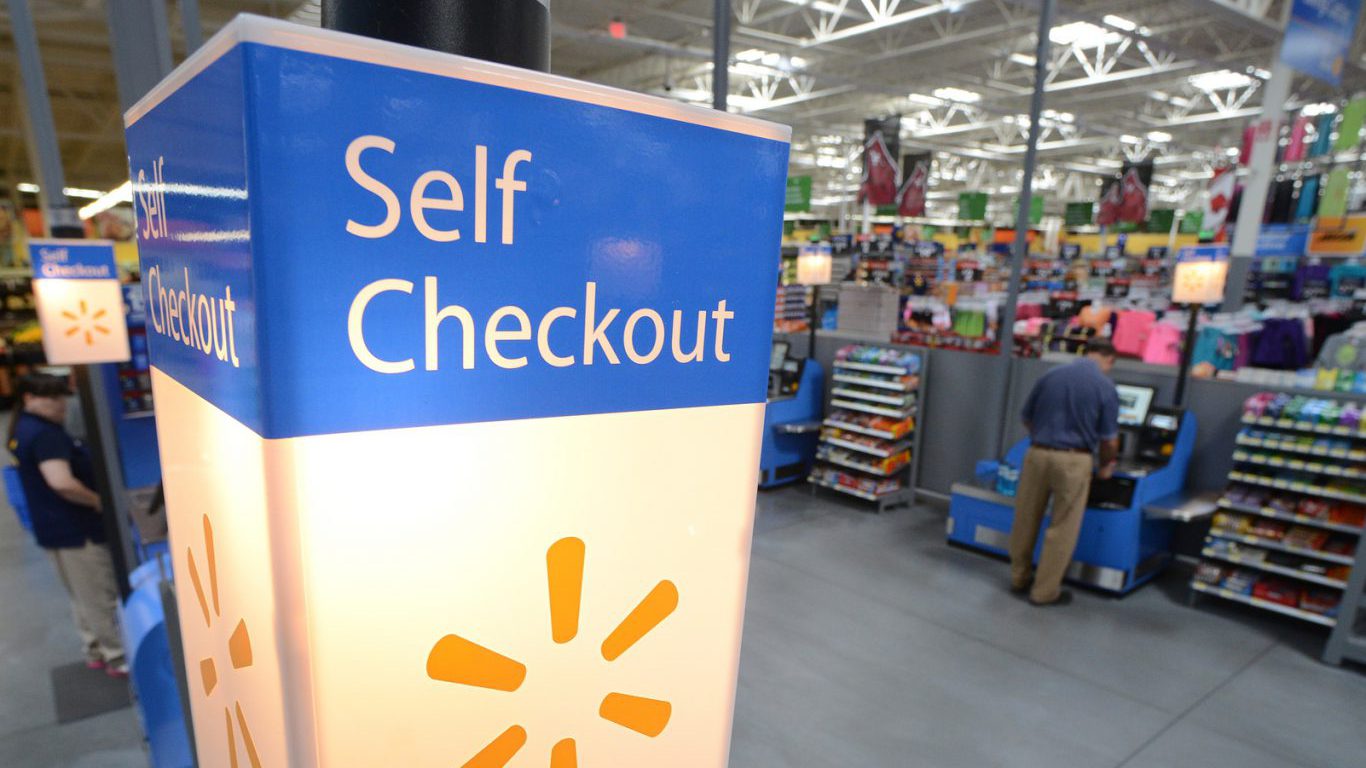
When Warren Buffet speaks, people tend to listen. Having been the world’s wealthiest man and being considered the greatest investor of modern times tends to come with at least some credibility. One thing that has been clear from Berkshire Hathaway Inc. (NYSE: BRK-A) is that its investing positions have changed more than ever over the course of 2016.
One stake that was virtually eliminated from Berkshire Hathaway’s portfolio of equity investments was Wal-Mart Stores Inc. (NYSE: WMT). Buffett appeared on CNBC Monday morning after his annual report, and one of the many things that he talked about was why he sold out of Wal-Mart recently. One of the obvious reasons was none other than Jeff Bezos and Amazon.com Inc. (NASDAQ: AMZN).
When Buffett and his host of employees released the public stock holdings of Berkshire Hathaway as of the end of 2016, the Wal-Mart stake was down to a mere 1.393 million shares. That is just a $100 million stake now. Maybe that is huge for the rest of us, but in a $140 billion or more stock portfolio it is not even a line-item.
Buffett had been trimming his Wal-Mart exposure. The stake had been cut down to about 12.9 million shares at the end of September, after having been as high as 60.385 million shares during 2015. If Buffett had never started selling out of Wal-Mart, that 60 million share stake would be worth more than $4.3 billion in current times. Buffett still called Wal-Mart a great company and a great American success story.
One issue that Buffett brought up is that retail in general has changed so much over time. He talked about how the department stores in towns were the big destination in the years prior to the 1960s and how he had lost money on a department store investment. Then came the large malls. And now the internet dominates. Buffett said on CNBC:
Retailing is tough for me to figure out because the internet has swept in and offered shoppers variety and low prices at their finger tips.
The internet is a serious challenge, and Buffett spoke more about Amazon than he did Wal-Mart or anything else in retail. Buffett praised Amazon for wanting to get into almost everything. He praised Bezos as being a terrific business person. Still, Buffett confessed on CNBC about why he did not or does not own shares of Amazon:
I don’t have a good answer on why I didn’t buy it long ago. … Obviously, I should have bought it long ago. I didn’t understand the power of the model. And the price (of Amazon’s stock) always seemed to reflect the power of the model at that time. It’s one I missed big time.
One final look here is how much Amazon has grown. Buffett himself did not bring this up, but it gives more and more insight into how things have changed, even if Wal-Mart is still the world’s largest physical retailer: Amazon has a market cap of $403 billion, nearly double that of Wal-Mart’s $221 billion.
Wal-Mart shares were last seen trading down 0.6% at $71.98 on Monday, in a 52-week range of $62.72 to $75.19. It has a consensus analyst price target of $74.94.
Amazon.com shares were down less than 0.1% at $844.95. Its 52-week range is $538.58 to $860.86, and the consensus price target was up at almost $929.
Thank you for reading! Have some feedback for us?
Contact the 24/7 Wall St. editorial team.




